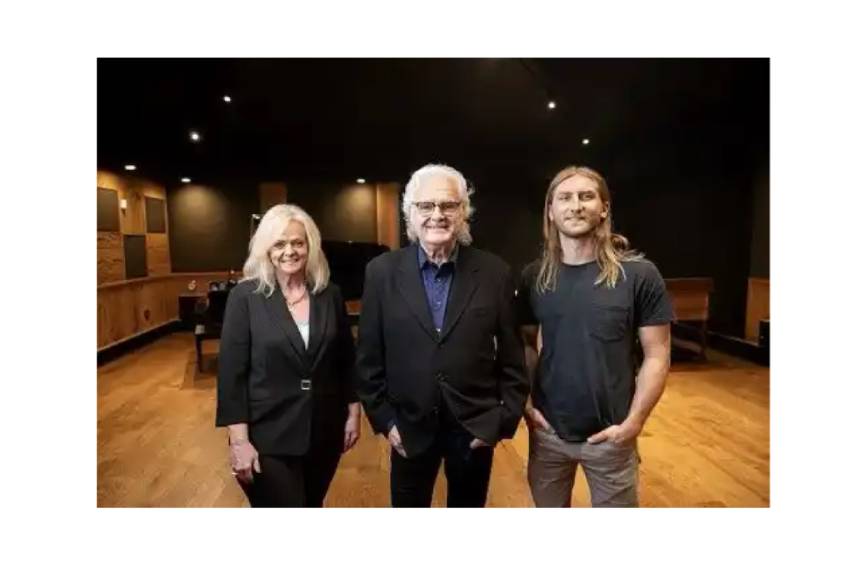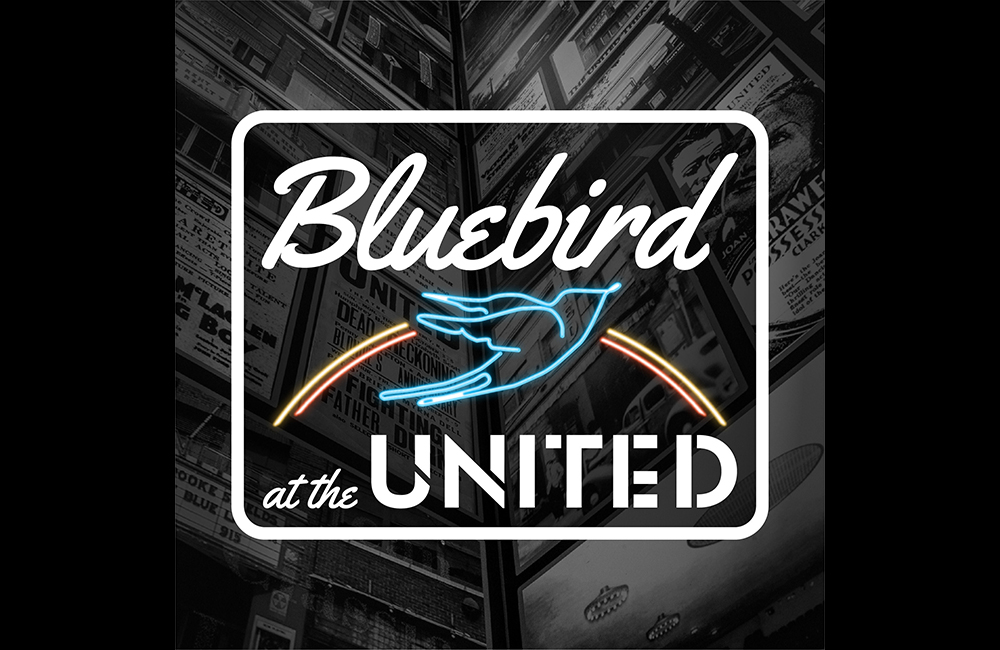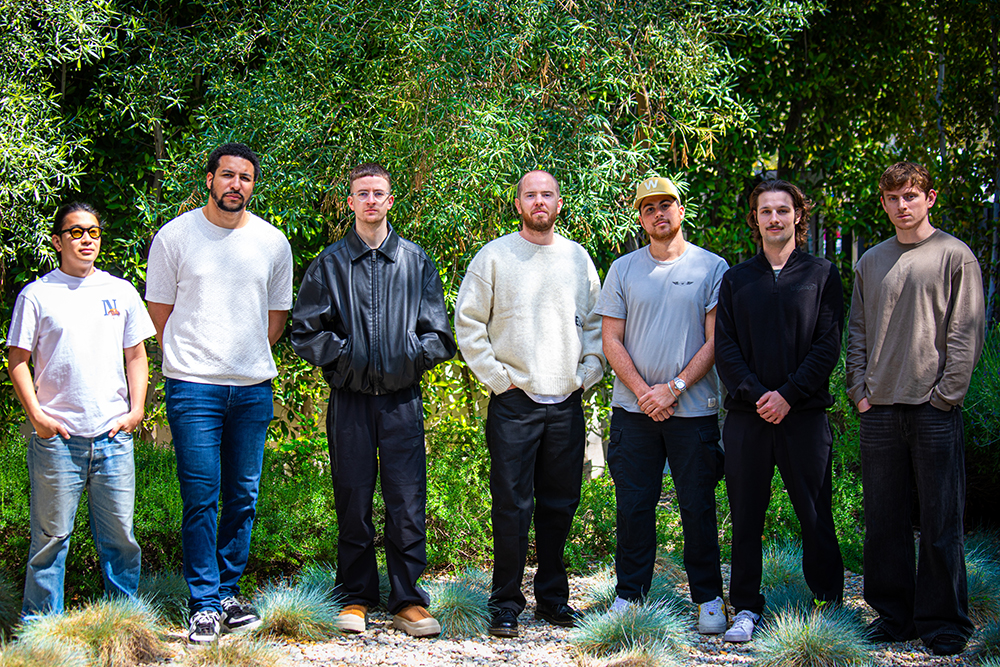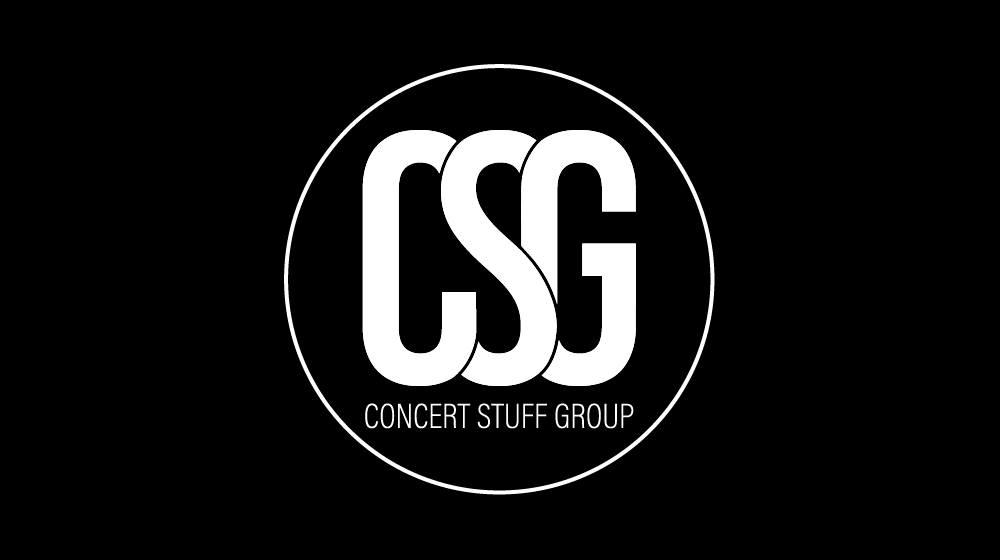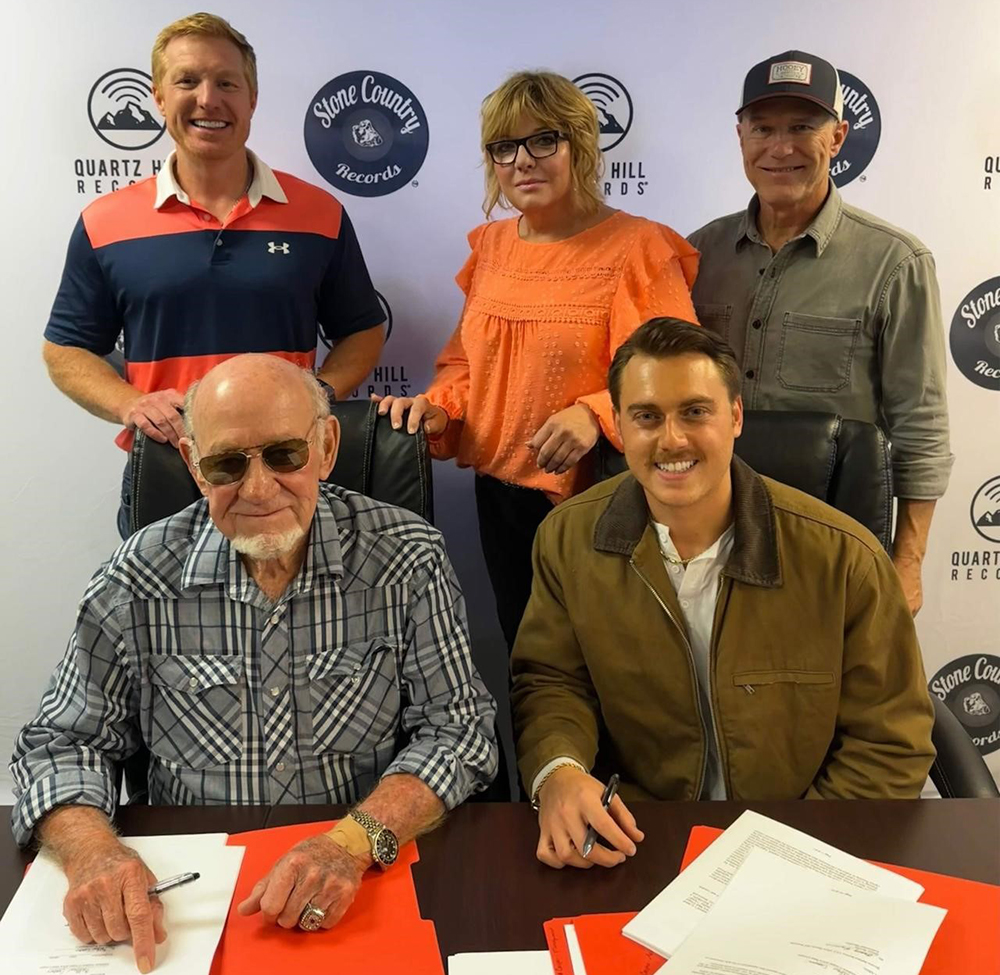
An unprecedented alliance of musicians, songwriters, music organizations, and record companies have launched an aggressive education campaign aimed at combating the wholesale theft of music that threatens the livelihoods of everyone from artists and songwriters to manufacturers, sound engineers, and record-store clerks. An estimated 2.6 billion-plus music files are downloaded illegally from the Internet each month, mainly through unlicensed "peer-to-peer" services such as KaZaA, Morpheus, and Gnutella.
In coming weeks, multi-platinum artists will be seen and heard in a series of television and radio spots reaching out to fans with the message that downloading music illegally is. In one spot, Britney Spears explains its' "the same thing as going into a CD store and stealing the CD." Similar messages will appear on the newly launched website, www.musicunited.org.
Four-year-old umbrella group MUSIC (Music United for Strong Internet Copyright) Coalition, has organized the campaign which kicked off September 26 with full-page ads in The New York Times, and the Los Angeles Times, as well as publications aimed at policymakers such as Roll Call. The ads ask the question, "Who Really Cares About Illegal Downloading?" — then answer it with a diverse list of nearly 90 major recording artists and songwriters, including such artists as Eminem, Madonna, the Dixie Chicks, Missy Elliott, Elton John, Sting, Phil Collins, Luciano Pavarotti, Brian Wilson, Britney Spears, and Natalie Cole.
"We should all cherish our artists. After all, if it were not for our creators — who should get paid for their work — there would be no music video, no music radio, no record manufacturers, no record retailers, no record distributors," said Barry Bergman, president, Music Managers Forum — USA. "The results of illegal downloading not only adversely affects artists, it also will result in mass unemployment. This is why we're joining the MUSIC Coalition."
"Our goal is to encourage people to do the right thing," says David Munns, vice chairman of EMI Recorded Music. "We want to let music fans know what's okay and what isn't when it comes to digital music. We want to educate them about who really gets hurt when they steal music. And we want to show computer users the many options they have for getting digital music legally."
Members of the MUSIC Coalition include: Alliance of Artists and Recording Companies, Association For Independent Music, American Federation of Musicians, American Federation of Television and Radio Artists, ASCAP, BMI, Country Music Association, Christian Music Trade Association, Gospel Music Association, Hip Hop Music Action Network, Jazz Alliance International, Music Managers Forum-USA, Nashville Songwriters Association International, National Academy of Recording Arts and Sciences, Recording Industry Association of America, Recording Industries Music Performance Trust Funds, SESAC, SoundExchange, Tennessee Songwriters Association International, and The Songwriters Guild of America.
Companies to Settle CD Price-Fixing Suit
NEW YORK (AP) — The five top U.S. distributors of compact discs and three large music retailers have agreed to pay $143 million in cash and CDs to settle charges they cheated consumers by fixing prices, authorities announced Monday.
The settlement brings to a close accusations made by attorneys general of 41 states and commonwealths who accused record companies of conspiring with music distributors to boost the prices of CDs between 1995 and 2000.
The companies broke state and federal antitrust laws, costing consumers millions of dollars, the attorneys general had charged in a lawsuit filed in August 2000 in U.S. District Court in Manhattan and later moved to Portland, Maine. A judge there must approve the deal.
The settlement calls for $67.3 million cash to be distributed to the settling states to compensate consumers who overpaid for CDs during the period and to pay settlement administration costs and attorneys' fees.
Consumers who bought CDs between 1995 and 2000 can file claims for part of the fund, prosecutors said. Public announcements will be made later to inform consumers how to participate in the payout.
The settlement also requires 5.5 million CDs valued at $75.7 million to be distributed to public entities and nonprofit organizations in each state to promote music programs.
The settlement will be distributed according to state population, although attorneys in the case are still working to determine a formula. New York, for example, will receive about 6 percent of the settlement.
Consumers in all 50 states will benefit under terms of the settlement, New York State Attorney General Eliot Spitzer said in a statement.
"This is a landmark settlement to address years of illegal price-fixing," Spitzer said. "Our agreement will provide consumers with substantial refunds and result in the distribution of a wide variety of recordings for use in our schools and communities."
The music distributors participating in the deal are Bertelsmann Music Group, EMI Music Distribution, Warner-Elektra-Atlantic Corporation, Sony Music Entertainment and Universal Music Group.
"We deny any wrongdoing," Warner-Elektra-Atlantic said in a statement. "We have made a business decision to settle these matters and avoid continuing with expensive and protracted litigation. The settlement made sense to us from a business perspective, and enables WEA to put this matter behind us."
Nathaniel Brown, a Bertelsmann Music Group spokesman, noted that the settlement does not state that there was any wrongdoing. He said the company maintains that its pricing practices were "appropriate and lawful" throughout the period.
Sony declined to comment. EMI and Universal did not immediately return telephone messages for comment.
Also included in the deal were three national retail chains: Trans World Entertainment, Tower Records, and Musicland Stores, a division of Best Buy Co. Inc.
Dawn Bryant, a spokeswoman for Musicland, said the company had no immediate comment. Trans World Entertainment spokesman John Sullivan said, "We were wrongly accused and nobody admitted any wrongdoing." Tower Records did not immediately return messages.
The lawsuit alleged that the companies — upset with low prices charged by some stores — conspired with retailers to set music prices at a minimum level, effectively raising the retail prices consumers paid for CDs.
The conspiracy caused the elimination of price discounting and significantly reduced price competition among music retailers, Spitzer said.
Courtney Love, Universal Settle Suit
 LOS ANGELES (AP) — Grunge singer-turned-actress Courtney Love and Vivendi Universal Music Group, the world's largest record conglomerate, announced settlement Monday of their lawsuits against each other with a deal that allows the music firm to release songs by her late husband's band Nirvana.
LOS ANGELES (AP) — Grunge singer-turned-actress Courtney Love and Vivendi Universal Music Group, the world's largest record conglomerate, announced settlement Monday of their lawsuits against each other with a deal that allows the music firm to release songs by her late husband's band Nirvana.
Universal sued Love in 2000 over five allegedly undelivered albums. She filed a countersuit last year in Los Angeles County Superior Court that sought to break her contract with Vivendi Universal and expose what she called unfair treatment of artists.
Love — the widow of Nirvana frontman Kurt Cobain, who committed suicide in 1994 — claimed Universal made about $40 million from album sales of her rock band, Hole, while she and band members collected only about $2 million in royalties.
Her lawsuit claimed she was coerced into signing away her rights, including ownership of her music.
As part of the settlement, Universal agreed to waive any rights to future recordings from Love and restore her ownership of unreleased Hole material.
In exchange, Love and the other members of the Cobain estate granted Universal permission to release new Nirvana packages, including a compilation album with a never-before-released track, a box set, and a rarities album. Separate permissions were obtained from the surviving members of Nirvana.
Additional terms of the settlement were not disclosed.
Love had once suggested that she would not settle the lawsuit.
"I could end up being the music industry's worst nightmare: a smart gal with a fat bank account who is unafraid to go down in flames fighting for a principle," Love told the Los Angeles Times in an article. "I'm ready to take this thing all the way to the Supreme Court."
After taking on her recording company, Love joined several artists such as the Dixie Chicks and Don Henley in demanding the freedom to negotiate less restrictive deals to capitalize on their success.
The Dixie Chicks and their label, Sony Music, settled their lawsuits against each other in June.
The recording industry is the only California-based industry allowed to hold workers to a contract with one company longer than seven years. Music executives maintain they must hold their successful acts to long-term recording contracts to help cover losses from their majority of acts that fail.
In August, a bill that would have limited recording industry contracts to seven years failed to garner enough votes and was withdrawn from the Legislature.
Love is currently recording a new album and the first single is set for release in January by Poptones Records.
"I'm excited to be releasing music again and rock music is starting to become very fun," Love said in a written statement.
Police: Tritt's Life Threatened
 NASHVILLE, Tenn. (AP) — A Murfreesboro man being held on charges of trying to have his wife harmed also discussed having country singer Travis Tritt murdered for $20,000, prosecutors said.
NASHVILLE, Tenn. (AP) — A Murfreesboro man being held on charges of trying to have his wife harmed also discussed having country singer Travis Tritt murdered for $20,000, prosecutors said.
Police and FBI agents listened last week as Parley Drew Hardman tried to arrange to have his ex-wife killed, or her legs broken, said federal prosecutor Sunny Koshy on Friday. The woman lives in Michigan, authorities said.
Hardman was having the conversation with Marvin Droznek, who had been arrested on cocaine possession and was cooperating with authorities.
"During a recorded conversation, Hardman asked Droznek how much it would cost to kill country music celebrity Travis Tritt," prosecutors said in a statement. "Hardman told Droznek that one of his friends had been mistreated by Tritt and wanted him dead. Droznek quoted a price of $20,000 to kill Tritt and Hardman advised him that it would take a couple of months to come up with the money."
Hardman was arrested after the meeting and charged with two counts of soliciting federal crimes of violence against his ex-wife. He is being held without bond.
No federal charges have been filed regarding the Tritt threat, but state charges are possible, Koshy said.
"Needless to say I was shocked to hear I was a target, especially when I have no idea who these people are," Tritt said. "My family and I are concerned and are taking this potential threat seriously."
Country Music Singer Arrested
 BRENHAM, Texas (AP) — Country music singer Doug Supernaw was in jail Thursday afternoon after police say he attacked five officers during a scuffle outside a Brenham bar.
BRENHAM, Texas (AP) — Country music singer Doug Supernaw was in jail Thursday afternoon after police say he attacked five officers during a scuffle outside a Brenham bar.
Suparnaw was arrested early Thursday and held on charges of assaulting a police officer, public intoxication and resisting arrest. Supernaw, who turned 42 Thursday, was being held on a $11,150 bond.
"He was supposedly causing a disturbance inside and supposedly he caused a problem with the bouncer and some other patrons," Brenham police detective Sgt. Daniel Gaskamp told The Banner-Press of Brenham.
Police responded at 12:15 a.m. and said they tried to calm Supernaw down.
"He (Supernaw) sat down on the sidewalk and refused to move," Gaskamp said.
Then, Gaskamp said, things Supernaw attacked five officers. The officers suffered minor cuts and scrapes.
In 1998, Supernaw was arrested on Valentine's Day at a Houston Livestock Show and Rodeo barbecue cookout. He was charged with public intoxication and spent a day in jail, but the charges were dismissed.
The year before, Supernaw was arrested in Lubbock for being delinquent on child support payments.
Supernaw lives and records in Bellville, Texas.
He has a gold album and his song "I Don't Call Him Daddy" was nominated for video of the year by the Academy of Country Music. His albums include "You Still Got Me" and "Fadin' Renegade," which produced the song "21-17."
Brenham is 75 miles northwest of Houston.
CMA Sues Over Name Similarity

NASHVILLE, Tenn. (AP) — The Country Music Association claims in a federal lawsuit that its name is being traded on by the Christian Country Music Association.
The lawsuit, filed Thursday, asks that the CCMA stop using the "CMA" acronym to market the organization, and its awards show and Web site.
The CMA was founded in 1958 in Nashville as a trade organization to promote the country music industry. The CCMA was founded in 1986 in Chattanooga to promote "positive" country music.
"We have tried for quite some time to encourage Mr. Gene Higgins, president and owner of the Christian Country Music Association, to stop promoting his event as the CCMA Awards because of the likelihood of confusion being created among consumers, the media and the industry," said CMA officials in a statement.
The lawsuit was filed after the CCMA scheduled its awards show for Nov. 5, the day before the CMA Awards.
The lawsuit doesn't ask for damages, just that the CCMA stop using "CMA" to identify itself and awards show.
Higgins declined to comment.
Prince Suing Internet Site
 MINNEAPOLIS (AP) — Prince's production company is suing the operator of an Internet site that allegedly offered pirated recordings of the rock star's live performances from his "Xenophobia" concert series in June.
MINNEAPOLIS (AP) — Prince's production company is suing the operator of an Internet site that allegedly offered pirated recordings of the rock star's live performances from his "Xenophobia" concert series in June.
Paisley Park Enterprises, based in Chanhassen, Minn., filed the copyright-infringement lawsuit in federal court Wednesday.
Prince names Matthew Lankford of Seattle, operator of http://FreeMyHeart.com — a Web site devoted to singer Me'Shell Ndegeocello.
The lawsuit alleges that Lankford broke federal copyright laws by allowing Web users to download Prince songs that included "specific information describing which day the unauthorized recording of the `Xenophobia' concert took place."
Lankford denied violating the copyrights and said he doesn't think he's done anything illegal.
"What he's claiming is that I put up files on my Web site. What happened is I put up links to other Web sites that had files on them," he said Friday.
Lankford said there's no mention of Prince on the Web site now and there won't be any in the future.
"One of my favorite artists is coming after me for promoting him on my Web site," Lankford said. "For him to seek $150,000 per song to try to ruin me for doing nothing more than promoting him is … overdoing it."
Prince, a longtime artists' rights advocate, filed at least nine lawsuits against Web sites in 1999, accusing them of selling bootlegged recordings and offering access to downloads of his songs.
Prince's official site — http://www.npgmusicclub.com — says he plans to release a three-CD box set from his recent U.S. tour. He hasn't released anything from the "Xenophobia" sessions.
Motley Crue Singer Pleads Innocent
LOS ANGELES (AP) — Motley Crue's lead singer Vince Neil has pleaded innocent to a misdemeanor battery charge for allegedly attacking a record producer outside the famed Rainbow Room nightclub in West Hollywood.
Neil, whose full name is Vincent Neil Wharton, was not required to be present at Friday's hearing in Beverly Hills Superior Court. His lawyer, Sara Kaplan, entered the plea on his behalf. A pretrial hearing was set for Nov. 19.
The charge stems from an altercation between Neil and producer Michael Schuman in the nightclub's parking lot on April 28.
Schuman's attorney, Trent Copeland, said Neil approached his client in the nightclub's parking lot and "slugged him several times in the face" although the two had never met.
"Based on what my client told me, this is unprovoked," Copeland said.
Schuman, who has collaborated with artists such as the Jacksons, Little Richard, Pat Boone and Stevie Wonder, suffered a fractured elbow after falling to the ground in the scuffle.
Loretta Lynn Sued By Former Manager For $200,000
 Loretta Lynn's former longtime manager Lane Cross is suing her for more than $200,000. They parted about a year ago. Lane's lawyer said ''he was unceremoniously booted out after seven years of loyal service,'' but Loretta's folks say he left on his own, according to the Tennessean.
Loretta Lynn's former longtime manager Lane Cross is suing her for more than $200,000. They parted about a year ago. Lane's lawyer said ''he was unceremoniously booted out after seven years of loyal service,'' but Loretta's folks say he left on his own, according to the Tennessean.
In the lawsuit filed in Davidson County Chancery Court, Cross claims that Lynn owes him thousands of dollars for his percentages of concerts he arranged and copies sold of Lynn's album Still Woman Enough and future album sales he had a hand in.
Lynn is now self-managed.
California Man Pleads Guilty to Bomb
VISTA, Calif. (AP) — A man accused of using homemade bombs in a quarrel with his neighbor, a member of the punk rock band Unwritten Law, pleaded guilty to felony charges of assault and possession of an explosive.
Martel Duvigneaud, 21, faces up to four years in prison and a $10,000 fine at sentencing Nov. 12. He entered his pleas Thursday.
"He accepts his responsibility," defense attorney Robert Grimes said. "He didn't intend to hurt anyone."
In August, Duvigneaud told police he was fed up with noise coming from the apartment of guitarist Steve Morris. He said he tried to startle Morris by putting two plastic bottles filled with dry ice, which expands as it melts, near his door.
One bottle exploded and damaged a light fixture. Morris took the other bottle into his Encinitas apartment, unaware that it could explode. While showing the bottle to investigators, it exploded, injuring Morris, his girlfriend, a security guard and a sheriff's deputy.
The band Unwritten Law, based in Poway, had its single "Seein' Red" recently reach the top of Billboard Magazine's Modern Rock Tracks chart.
Lawsuit Might Delay Bon Jovi Album
NEW YORK (AP) — The new Bon Jovi album could be delayed because of a legal issue over anti-piracy technology. The new disc, "Bounce," is due out on Oct. 8.
Bon Jovi's label, Universal Music, is being sued by DownloadCard, a provider of anti-piracy services. Universal Music has launched a promotional campaign with the Bon Jovi album involving a serial number that will come with every copy. Users can type in to the band's Web site for exclusive content.
DownloadCard claims it created that program and offered it to Universal Music. DownloadCard is seeking compensatory damages. A Universal Music spokeswoman declined to comment.
Bon Jovi recently played some songs off "Bounce" at an NFL kick off the season concert in Times Square. An estimated crowd of 500,000 also saw Eve, Alicia Keys, Enrique Iglesias and 'N Sync's Joey Fatone perform that evening.
Bill Proposed To Ban Cellphones In NYC Theaters
 New York City is about to ban the use of cellphones in theaters–concerts, ballets, movies, you name it. A bill proposed by City Councilman Philip Reed of Manhattan would ban the use of mobile phones in "places of public performance" and make violators subject to a fine of up to $50. Operators of the performance spaces would be required to post signs outlining the ban.
New York City is about to ban the use of cellphones in theaters–concerts, ballets, movies, you name it. A bill proposed by City Councilman Philip Reed of Manhattan would ban the use of mobile phones in "places of public performance" and make violators subject to a fine of up to $50. Operators of the performance spaces would be required to post signs outlining the ban.
"The ringing of cellphones has ruined too many theatrical performances — for too many people, audiences and performers alike," Barbara Janowitz, government relations director of the League of American Theaters and Producers, a Broadway trade association, told the Council at a public hearing. "It is time to work together to put an end to it."

























